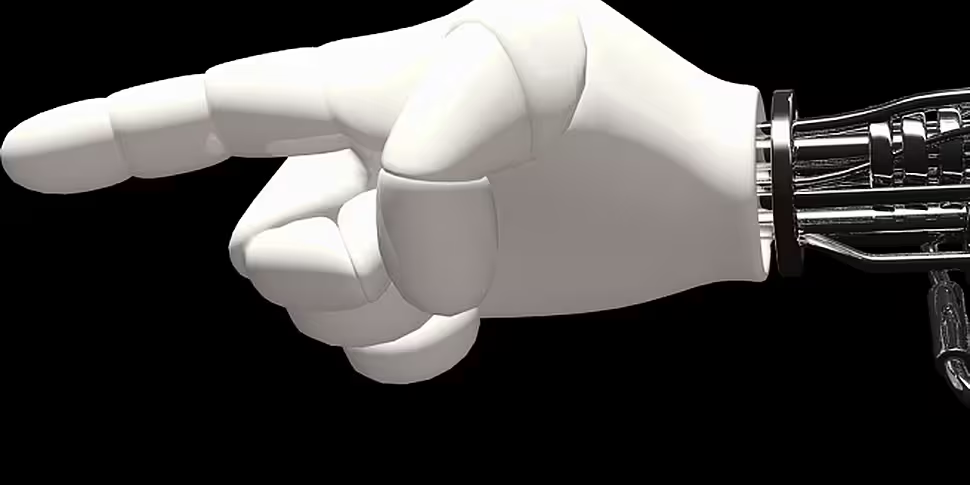When you picture the future, what do you see? Are you the type of person who dreads the arrival of the robots, or do you see computers as an aid to getting things done?
The future of the workplace is just one issue that will be addressed at this year's FutureScope, which is taking place on Wednesday. One of those going along is Stephen Kruger, who is an IT architect on a product offering called IBM Kenexa Employee Voice. This is a tool that helps companies gain insights, identify opportunities, risks, and hot spots with real-time employee surveys and cognitive analytics.
"The goal of the offering is to enable employers to identify relevant action plans and drive greater employee engagement," Kruger told Newstalk.com this week.
Very often when technology and robots in the workplace are discussed, there is usually a fear factor there. Kruger says that there are huge benefits from using this type of technology.
"Change is always disruptive, and historically the disruptive changes we've seen with technology like automobiles, manufacturing automation, computing etc all create far more opportunities than they displace," he says. "What many people also fail to realise is that these technologies always end up making things more accessible to more people, at a lower cost."
"Whilst we will see changes in the way we interact with people who are generalists and specialists across all industries, availability of their expertise is greatly increased. We anticipate this will happen by providing tools to enable users to pre-process themselves in ways which allow the specialist to focus only on relevant data."

"So if we previously required 1 specialist per 100 users, with cognitive assistance that same specialist could now service 1000 users. The end sum is that an additional 900 users now have access to that specialist's services, and the cost of that service, is likely to be 1000 times cheaper," says Kruger.
When it comes to identifying the most the industries that are most vulnerable to robots and machines, Kruger says it can be a bit tricky.
"The hard question analysts are trying to figure out is actually the opposite of this: which industries will have the LEAST impact. Clearly the usual suspects of Finance, Insurance and Healthcare are seeing many gains in this space. Interestingly, we're seeing unexpected inroads into consumer situations with the recent flurry of activity around the voice activated appliances; Amazon's Alexa, Google Home, Apple's Siri. In reality, we are likely to see an improvement in service levels across all industries. For example, more tailored insurance policies for your particular risk profile and processed/approved in minutes rather than weeks. Improved mortgage approval process, loan approvals etc. Healthcare will become more accessible with only the last mile involving physical consultations."
Opportunities
While the downside to this technology needs to be fully explored, there are many opportunities for both the producer and the consumer, as Stephen Kruger outlined.
"For the producers, it's lower cost margins, a better understanding of your customer and better planning. For consumers, it's better access to more customised services at a lower cost and quicker time frame. As usual, the capitalistic driving forces between producers and consumers shapes how this plays out, so I think the only real thing we can predict is to change on a time scale we've not experienced before. Apart from infrastructure, there's no reason Tesco or Dunnes couldn't stock our fridges directly within a few years. The impact on our day to day lives will be significant."
You may wonder if there is any industry that is completely robot-proof. While the machines do have certain things on us, Kruger stressed that humans have a number of advantages too.
"Humans have an advantage in any disciplines where Empathy, Understanding, Creativity (problem-solving) and Learning are key. There is also an innate value to, for e.g. an art piece created by a human versus computer generated art. This extends to music composition, design, authoring and other typically human endeavors. But I think the question is being asked from the wrong angle. We should be asking what industries are robot-ready? How can we apply this incredible computing ability to new domains to open up new markets or improve existing ones? That is the kind of thinking that will make you future proof."
FutureScope 2017 takes place this Wednesday. Tickets are available here, starting from €175









